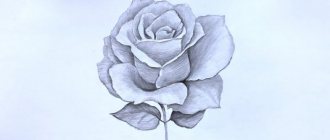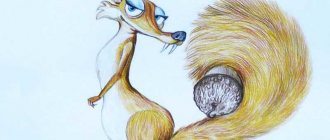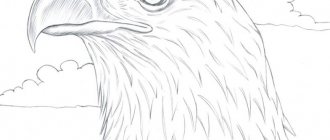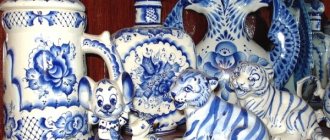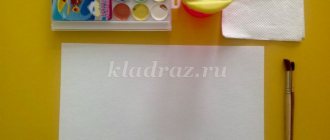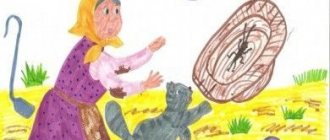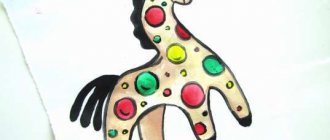On the topic: methodological developments, presentations and notes
Summary of a drawing lesson for children of the second junior group, using an unconventional technique with cotton swabs.
Mutual attendance at drawing classes in the preparatory group.
Lesson notes on artistic and aesthetic development with a linguistic component. Integration of the linguistic component and artistic and aesthetic education using technology.
Summary of a lesson on artistic and aesthetic development: drawing “Wintering Birds” Program content: To develop in children the ability to convey the image of a bird using non-traditional methods.
Outline of a lesson on artistic and aesthetic development. Drawing “Dymkovo birds (cockerel).”
Source
Unusual specimens
There are varieties that cannot be confused with anyone else. For example, this is an overweight pelican, with a beak-bag where it stores fish, or a toucan with a special structure of a voluminous nose-beak.
Pink flamingos on elongated legs are graceful and spectacular, and the nimble swallow is distinguished by its forked tail and erected hut nests.
The highlight of the peacock is a chic blossoming fan-tail with diamond-shaped colored patterns, and its head is crowned with a “crown” of corollas with circles.
Let's depict a formidable eagle:
- We make a general sketch of the body with all its fragments.
- We start detailing from the head with a slightly open beak-hook and an eye with a pupil under the eyebrow.
- We approach the back, lowering ourselves onto the tail section.
- The sitter has sharp claws on his large paws, and specific “pants” on his shins.
- We convey the plumage on the powerful wings by shading.
We draw the stump on which the predator is sitting.
Graceful swans are impressive, associated with fidelity and love. The simplest version begins by drawing the number two flowing into the body rocking on the waves. These birds have a characteristic marking on their wide beak and webbed feet.
Dove of peace
When thinking about how to draw a bird for children, remember the dove - a fluttering creature with a flowering twig in its beak, which is a symbol of peaceful life.
Having outlined the oval body and the circle head, they are combined by adding a carved tail. The wings, open to the sides, can be compared in shape to an inverted trapezoid. The final stroke is to give the edges of the feathers fragmentation with zigzags.
Of course, it is impossible to cover all the inhabitants of heaven. Starting with one image and strengthening your skills, move on to the next example. Children will certainly enjoy this exciting pastime, which not only develops fine motor skills, but also expands their horizons and knowledge about the earth's fauna.
Crow
Flocks of crows have chosen places close to humans; these birds are smart and intelligent. We offer a way to draw this bird easily and simply:
- On one diagonal we draw contour sketches of the head and torso, thickened towards the bottom and a triangular tail.
- We connect these parts with a stroke, completing the beak and two paws with claws.
- We detail the wing and give the tail a flat appearance.
- Having removed the basting, we move on to the plumage.
- Inside the eye we designate a highlight; an additional curve goes from it to the beak.
You can start shading with a black pencil, emphasizing the feather coating with contrast. If you choose the image of a magpie, then remember its peculiar black and white coloring and long tail.
Fairytale variations
The firebird from the fairy tale has sweeping fan-like wings and a flowing plume-tail, a non-trivial fiery coloring, performed at its own discretion.
It is filled with figural patterns of different colors, from which streaks radiate, comparable to hair. Next, you need to blacken the edges of the plumage and fix the head crest.
Also interesting is a character who has an unusual, bright appearance. This is a circle with a polygonal beak, on the sides of which there are huge eyes with the obligatory “bags” under them. There is a crest on the head and a miniature tail on the left. You can start coloring.
Small breeds
Sparrows are the most common family; their oval body is equipped with a round head and a triangle-beak. Draw the wing, eye and thin legs. An interesting titmouse with a round yellow belly.
The smallest bird is the hummingbird, which is distinguished by its long nose, thickened at the base, with which it drinks nectar from flower buds; it has also earned fame for its ability to fly backwards. The picture will turn out believable if you carefully work out the feathers of the birds.
Photo gallery: examples of children's work on the topic “Birds”
The image of the Firebird is conveyed very elegantly - with a combination of yellow and orange colors
The poking method allows you to convey the fluffiness of a swan
The background is very beautifully designed - the sky
The multi-colored image of the cockerel echoes the variegated flowers with petals of the same tones. Bright colors combined with unconventional techniques give an original result
The plot composition has many characters
Pencil produces soft pastel colors
Subject compositions are often easier to depict with pencils
The black and yellow titmouse looks beautiful against the background of blue snow. The fairytale bird looks more like a small chick hiding in a pine branch
You can unusually convey the loose tail of almost any bird with your palm
Future schoolchildren learn to draw sitting birds
The image of an owl encourages the use of unconventional techniques
Using foam rubber, the shaggy plumage of an owl is well conveyed
The owl's plumage is originally rendered in the form of brown zigzags on a yellow background.
The images of sparrows pecking grains are conveyed very realistically
Beautiful subject composition, gives the impression of birds moving
Children usually love to portray living creatures, especially those that they can observe in nature. That's why the theme "Birds" is always popular with preschoolers. Many pupils of the preparatory group are able to accurately notice the characteristic features of different birds and convey them through drawing, harmoniously building a composition. The main thing for the teacher is to captivate the students, motivate them to be creative, and provide some interesting information that will additionally awaken interest in birds.
